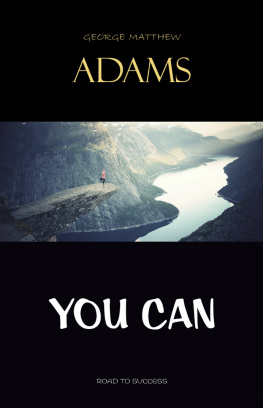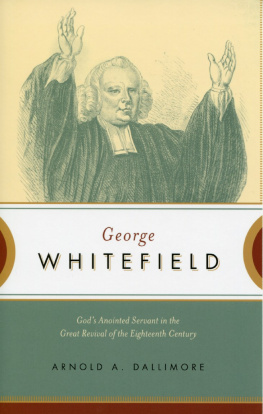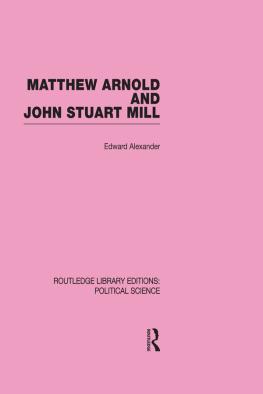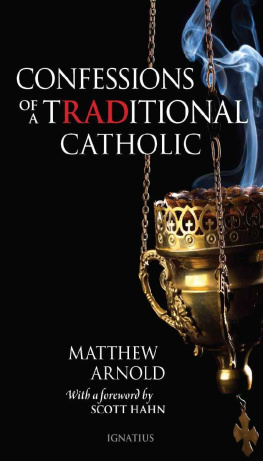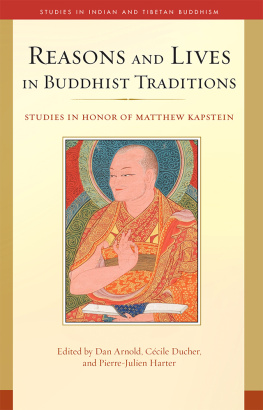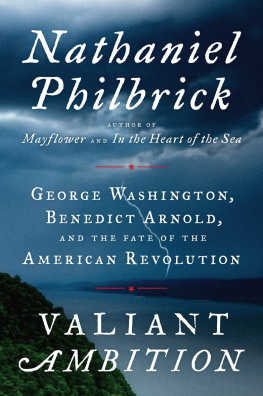George Saintsbury - Matthew Arnold
Here you can read online George Saintsbury - Matthew Arnold full text of the book (entire story) in english for free. Download pdf and epub, get meaning, cover and reviews about this ebook. year: 2009, genre: Science. Description of the work, (preface) as well as reviews are available. Best literature library LitArk.com created for fans of good reading and offers a wide selection of genres:
Romance novel
Science fiction
Adventure
Detective
Science
History
Home and family
Prose
Art
Politics
Computer
Non-fiction
Religion
Business
Children
Humor
Choose a favorite category and find really read worthwhile books. Enjoy immersion in the world of imagination, feel the emotions of the characters or learn something new for yourself, make an fascinating discovery.
- Book:Matthew Arnold
- Author:
- Genre:
- Year:2009
- Rating:4 / 5
- Favourites:Add to favourites
- Your mark:
- 80
- 1
- 2
- 3
- 4
- 5
Matthew Arnold: summary, description and annotation
We offer to read an annotation, description, summary or preface (depends on what the author of the book "Matthew Arnold" wrote himself). If you haven't found the necessary information about the book — write in the comments, we will try to find it.
Matthew Arnold — read online for free the complete book (whole text) full work
Below is the text of the book, divided by pages. System saving the place of the last page read, allows you to conveniently read the book "Matthew Arnold" online for free, without having to search again every time where you left off. Put a bookmark, and you can go to the page where you finished reading at any time.
Font size:
Interval:
Bookmark:
The Project Gutenberg EBook of Matthew Arnold, by George Saintsbury
This eBook is for the use of anyone anywhere at no cost and with
almost no restrictions whatsoever. You may copy it, give it away or
re-use it under the terms of the Project Gutenberg License included
with this eBook or online at www.gutenberg.net
Title: Matthew Arnold
Author: George Saintsbury
Release Date: July 13, 2005 [EBook #16284]
Language: English
*** START OF THIS PROJECT GUTENBERG EBOOK MATTHEW ARNOLD ***
Produced by Jonathan Ingram, Carol David, Ben Beasley and
the Online Distributed Proofreading Team at
http://www.pgdp.net
| Matthew Arnold | Professor Saintsbury. |
| R. L. Stevenson | L. Cope Cornford. |
| John Ruskin | Mrs Meynell. |
| Alfred Tennyson | Andrew Lang. |
| Thomas Henry Huxley | Edward Clodd. |
| Thackeray | Charles Whibley. |
| George Eliot | A. T. Quiller-couch. |
| Browning | C. H. Herford. |
| Froude | John Oliver Hobbes. |
| Dickens | W. E. Henley. |
University Of Edinburgh
Mr. Matthew Arnold , like other good men of our times, disliked the idea of being made the subject of a regular biography; and the only official and authoritative sources of information as to the details of his life are the Letters published by his family, under the editorship of Mr G.W.E. Russell (2 vols., London, 1895) [1] . To these, therefore, it seems to be a duty to confine oneself, as far as such details are concerned, save as regards a very few additional facts which are public property. But very few more facts can really be wanted except by curiosity; for in the life of no recent person of distinction did things literary play so large a part as in Mr Arnolds: of no one could it be said with so much truth that, family affections and necessary avocations apart, he was totus in illis. And these things we have in abundance. [2] If the following pages seem to discuss them too minutely, it can only be pleaded that those to whom it seems so are hardly in sympathy with Matthew Arnold himself. And if the discussion seems to any one too often to take the form of a critical examination, let him remember Mr. Arnolds own words in comparing the treatment of Milton by Macaulay and by M. Scherer:
Whoever comes to the Essay on Milton with the desire to get at the real truth about Milton, whether as a man or a poet, will feel that the essay in nowise helps him. A reader who only wants rhetoric, a reader who wants a panegyric on Milton, a panegyric on the Puritans, will find what he wants. A reader who wants criticism will be disappointed.
I have endeavoured, in dealing with the master of all English critics in the latter half of the nineteenth century, to help the reader who wants criticism.
- Life till Marriage, and Work till the Publication of the Poems of 1853
- Life from 1851-62Second Series of PoemsMeropeOn Translating Homer
- A French EtonEssays in CriticismCeltic LiteratureNew PoemsLife from 1862 to 1867
- In the Wilderness
- The Last Decade
- Conclusion
- Index
Even those who are by no means greedy of details as to the biography of authors, may without inconsistency regret that Matthew Arnolds Letters do not begin till he was just five-and-twenty. And then they are not copious, telling us in particular next to nothing about his literary work (which is, later, their constant subject) till he was past thirty. We could spare schoolboy letters, which, though often interesting, are pretty identical, save when written by little prigs. But the letters of an undergraduateespecially when the person is Matthew Arnold, and the University the Oxford of the years 1841-45ought to be not a little symptomatic, not a little illuminative. We might have learnt from them something more than we know at present about the genesis and early stages of that not entirely comprehensible or classifiable form of Liberalism in matters political, ecclesiastical, and general which, with a kind of altered Voltairian touch, attended his Conservatism in literature. Moreover, it is a real loss that we have scarcely anything from his own pen about his poems before Sohrab and Rustumthat is to say, about the great majority of the best of them. By the time at which we have full and frequent commentaries on himself, he is a married man, a harnessed and hard-working inspector of schools, feeling himself too busy for poetry, not as yet tempted by promptings within or invitations from without to betake himself to critical prose in any quantity or variety. Indeed, by a not much more than allowable hyperbole, we may say that we start with the book of his poetry all but shut, and the book of his prose all but unopened.
We must therefore make what we can of the subject, and of course a great deal more is to be made in such a case of the work than of the life. The facts of the latter are but scanty. Matthew Arnold, as all the world knows, was the sonthe eldest sonof the famous Dr (Thomas) Arnold, Head-master of Rugby, and Regius Professor of Modern History at Oxford, where he had earlier been a Fellow of Oriel. Dr Arnold survives in the general memory now chiefly by virtue of his head-mastership, which was really a remarkable one, whatever distinction it may owe to the loyalty of such a group of pupils as his son, Dean Stanley, Clough, Tom Brown Hughes, and others. But he was, if not positively great, a notable and influential person in many ways. As a historian he was alert and intelligent, though perhaps too much under the influence of that subtlest and most dangerous kind of popular breeze which persuades those on whom it blows that they are sailing not with but away from the vulgar. As a scholar he was ingenious, if not very erudite or deep. He was really a master, and has been thought by some good judges a great master, of that admirable late Georgian academic style of English prose, which is almost the equal of the greatest. But he was, if not exactly cupidus novarum rerum in Church and State, very ready to entertain them; he was curiously deficient in logic; and though the religious sense was strong in him, he held, and transmitted to his son, the heresythe foundation of all heresiesthat religion is something that you can bespeak, that you can select and arrange to your own taste; that it is not to take or to leave at your peril and as it offers itself.
On August 11, 1820, Dr Arnold married Mary Penrose, and as he had devoted his teaching energies, which were early developed, not to school or university work, but to the taking of private pupils at Laleham on the Thames, between Staines and Chertsey, their eldest son was born there, on Christmas Eve, 1822. He was always enthusiastic about the Thames valley, though not more so than it deserves, and in his very earliest letter (January 2, 1848) we find record of a visit, when he found the stream with the old volume, width, shine, rapid fulness, kempshott, [3] and swans, unchanged and unequalled. He was only six years old when his father was elected to the head-mastership of Rugby; he was educated in his early years at his birthplace, where an uncle, the Rev. John Buckland, carried on the establishment, and at the age of fourteen he was sent to Winchester, his fathers school. Here he only remained a year, and entered Rugby in August 1837. He remained there for four years, obtaining an open Balliol scholarship in 1840, though he did not go up till October 1841. In 1840 he had also gained the prize for poetry at Rugby itself with
Font size:
Interval:
Bookmark:
Similar books «Matthew Arnold»
Look at similar books to Matthew Arnold. We have selected literature similar in name and meaning in the hope of providing readers with more options to find new, interesting, not yet read works.
Discussion, reviews of the book Matthew Arnold and just readers' own opinions. Leave your comments, write what you think about the work, its meaning or the main characters. Specify what exactly you liked and what you didn't like, and why you think so.


